Xtremehorticulture of the Desert Varieties of Almond
:max_bytes(150000):strip_icc()/EvergreenPlanet-12b788d10fc7483d92b4c88e5e02cf13.jpg)
What Are Pluots, and How Are They Used?
Pluots (plum + apricot) are usually a 75 percent plum and 25 percent apricot cross; they look and taste more like plums than apricots. The taste, texture, fragrance, and appearance of pluots can be similar to either apricots or plums. Pluots make up about 98 percent of the yearly crop. Plumcots (also plum + apricot) are a 50-50 cross between.
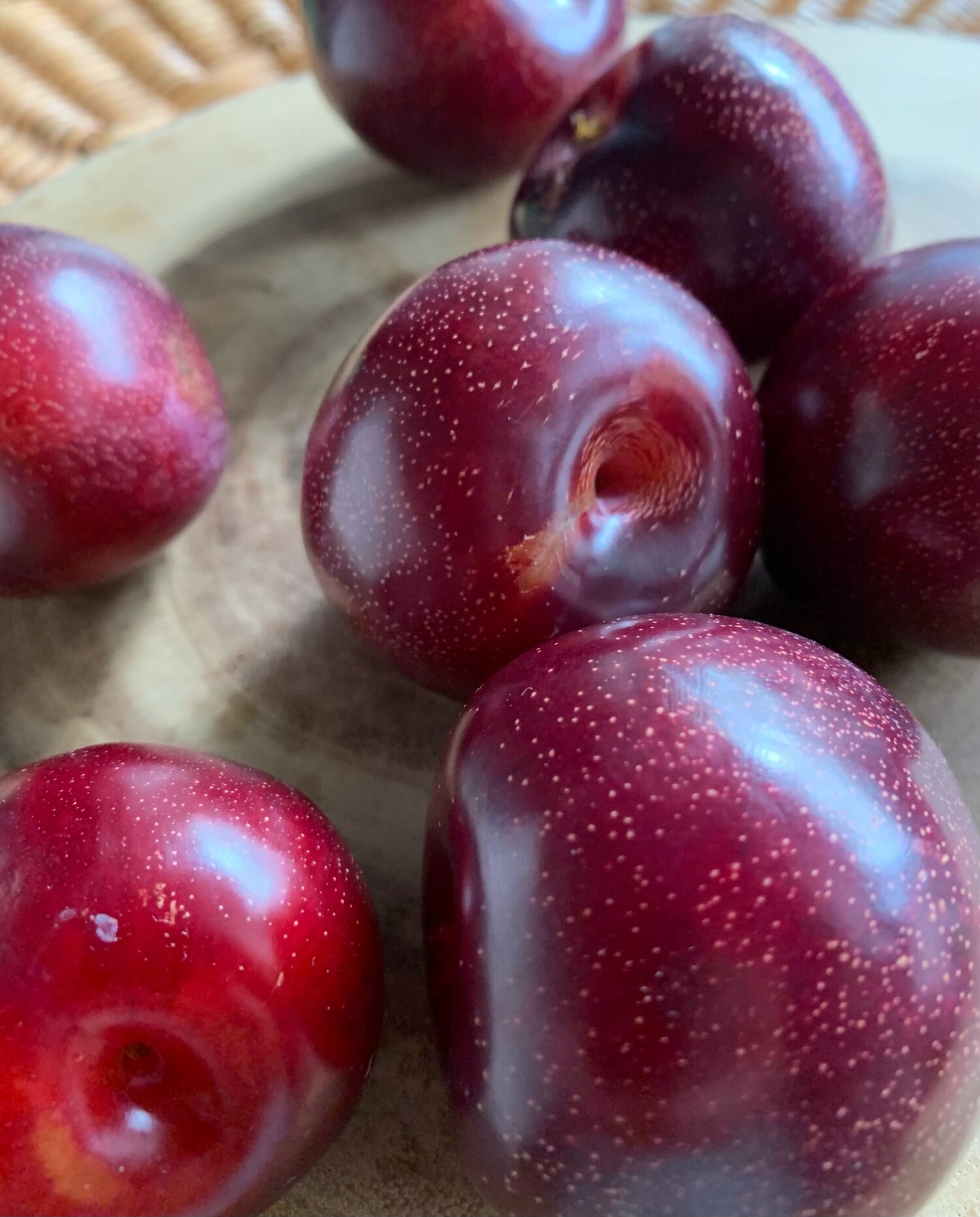
I Plotz for Pluots — Eat Paint Live
Pluots. Pluots, in the simplest sense, are hybrids of plums and apricots. Floyd Zaiger first developed the Pluot in the 1980s, going through multiple generations of plum x apricot hybrids until he was satisfied with the end product. While the fruit hybrid is commonly known as Pluot, a few people know that Pluot is actually a registered trademark.

Flavor Rosa Pluots Information and Facts
However, a pluot's skin draws its taste from apricots, making for sweet bites from start to finish. This intense sugariness makes pluots prime candidates for fruit-based desserts and smoothies.
Xtremehorticulture of the Desert Varieties of Almond
Select pluots just as you would a plum. Look for fragrant-smelling fruit that's firm but gives to the touch, and is free from blemishes. Pluots come in a variety of colors — choose the most vibrant looking fruits among each variety, as those will be the sweetest. Stay away from plots that feel especially hard, they won't ripen well.
:max_bytes(150000):strip_icc()/HilaryBrodeyEyeEm-42ad439f81774416a788a40b97fb6615.jpg)
What Are Pluots, and How Are They Used?
Photography by Kenji Toma. January 25, 2008. A Pluot is a hybrid fruit that is three quarters plum and one quarter apricot, combining the best qualities of each. It's a trademarked name that's now.

Visions of sugar plums the roots of taste
The texture, flavor and color of pluots are very similar to those of plums. They have smooth skin that can be dark red, dark purple or red with yellow flecks. The skin is glossy and sleek like a plum but the flesh is a bit different. They can have red or yellow flesh, but it's less juicy and not as grainy as plum flesh—it's smooth and consistent.
:max_bytes(150000):strip_icc()/PicturePartners-0b89fc71948d49c88fde1c409c82b28a.jpg)
What Are Pluots, and How Are They Used?
Simmer covered for 10 minutes. Turn off the heat and let steep for 1 hour. Strain the ingredients and place the vinegar solution in a large non-reactive bowl (preferably glass). Use a spice or coffee grinder to very coarsely grind the mustard seeds. Stir the coarsely ground mustard seeds into the vinegar solution.
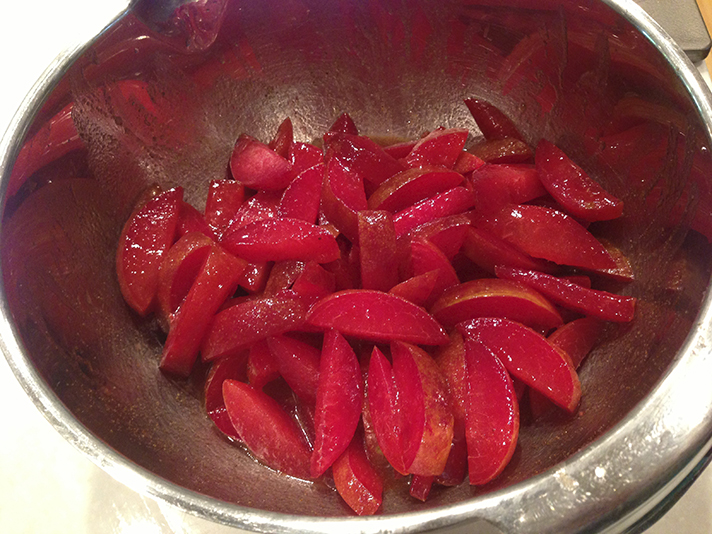
Fiber
Pluots have a flavor that combines the sweetness of plums with the slight tartness of apricots. The exact taste can vary, as different varieties have different levels of sweetness and acidity.

How do pluots taste compared to plums and apricots? Agriculture.Gov
Pluots: How to Select, Store, and Eat the Stone Fruit. Written by MasterClass. Last updated: Dec 21, 2021 • 3 min read. Part plum and part apricot, the pluot is a tasty hybrid fruit with sweet and tart notes, making it perfect for various raw and cooked dishes. Learn how to choose, store, and enjoy pluots. Part plum and part apricot, the.
:max_bytes(150000):strip_icc()/agil73-e415c715846f47b382b5658f8843ae8f.jpg)
What Are Pluots, and How Are They Used?
Plums and pluots each have over 20 varietals with variations in size, color, and sweetness. Pluots look a lot like plums but taste much sweeter thanks to the infusion of apricot genes. Both plum and pluot skin is quite smooth. However, pluot flesh is more similar to that of an apricot, thus making them ideal for cooking as they hold together.

Plumcots vs. Pluots What’s the Difference? Recette Magazine
Plumcots, apriums, and pluots are all hybrid fruits that are a cross between plums and apricots. They were created by plant breeders in the early 20th century, and have become increasingly popular in recent years. California is the leading producer of these fruits in the United States. Plumcots are a 50-50 cross between plums and apricots.

A Guide to the Most Popular Types of Stone Fruit
Here are some key differences: Plumcots have a 50-50 blend of plum and apricot genetics. Pluots contain about 75% plum and 25% apricot DNA. Plumcots exhibit more apricot-like traits such as sweet-tart flavor, bright coloring, and tender flesh. Pluots lean more strongly towards plums in taste, texture, and appearance.
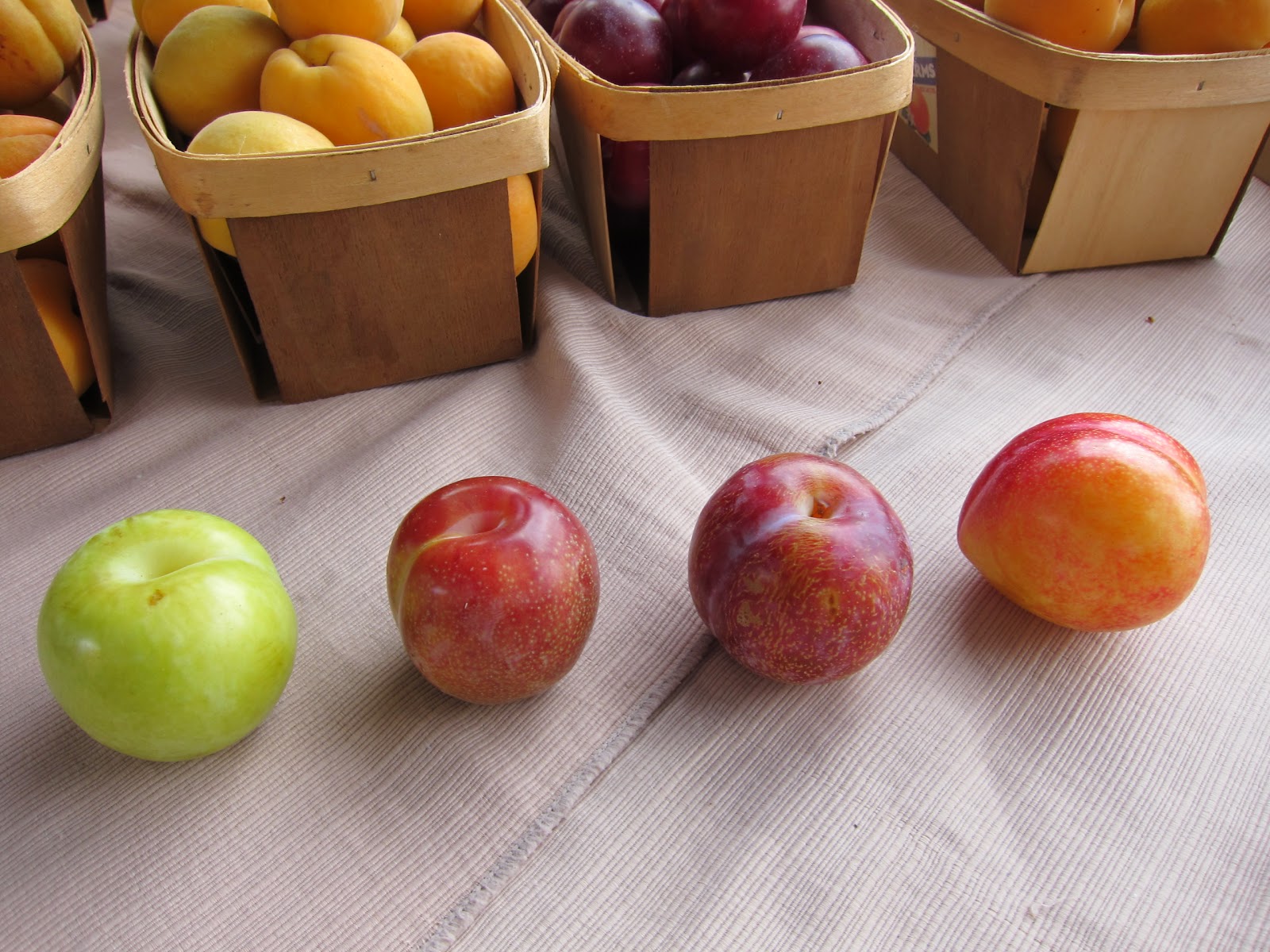
One More Bite Blog Food Travel Adventures 1MB Taste Test Pluots
Pluots are the most popular plum-apricot hybrids available. While the 75-25 split is most common, there are other percentages out there, but all have a greater percentage of plum to apricot. Zaiger Genetics also trademarked the name pluot in 1990. Pluots taste more like plums than apricots and are usually available throughout the summer.
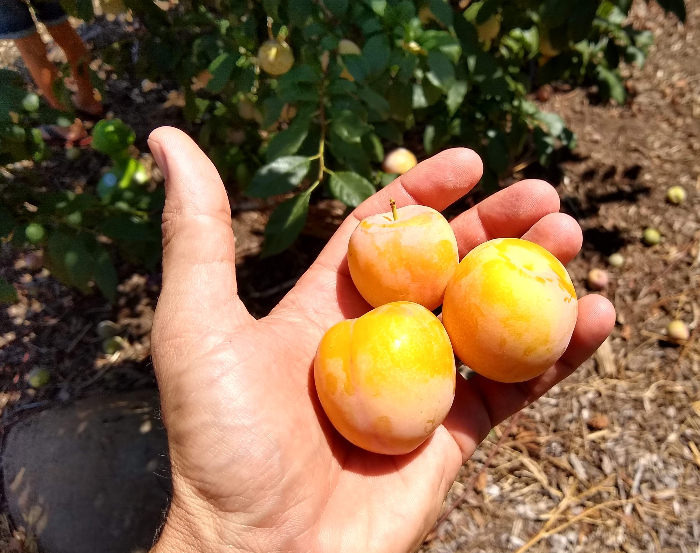
Growing pluots in Southern California Greg Alder's Yard Posts
Pluot Recipes. Because pluots are mostly comprised of plum DNA, you can use this fruit as a substitute anywhere plums are used from jams and sauces to baked goods and as a filling for pierogies. Keep in mind the flavor is a bit sweeter and the skin is less bitter, and the texture proves closer to an apricot. Pluot Cake or Plum Cake.

Pluots Everything You Need to Know from TexasRealFood
Pluot® Interspecific: Splash: Small to medium size, red-orange skin, very sweet orange flesh. Taste test favorite. PR: 6-10: 400 or fewer: July 10: Pluot® Interspecific: Emerald Drop: Green skin, yellow orange flesh. Sweet, firm-ripe fruit holds on tree, continuing to sweeten. PR: 6-10: 400 or fewer: July 17: Pluot® Interspecific: Dapple Dandy
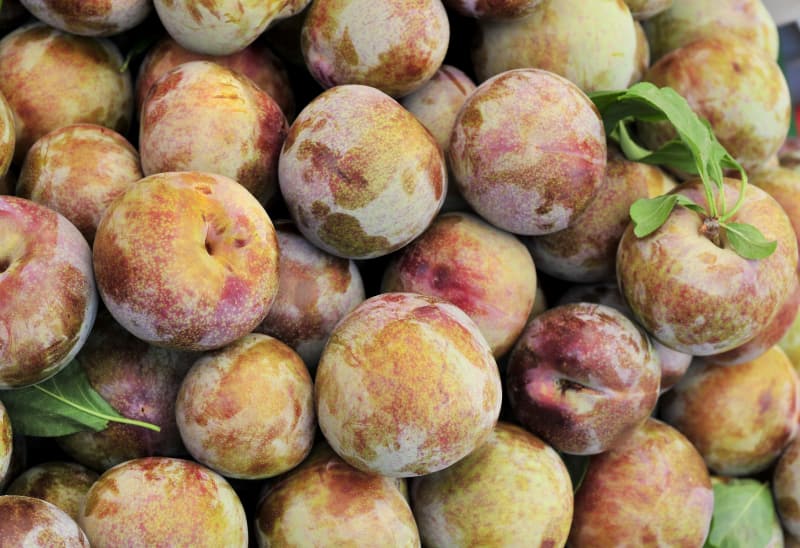
How Pluots, Apriums, and Plumcots Get Their Names Kitchn
Pluots make a delicious better-for-you snack, whether they're packed into lunch boxes or stashed in your office desk. They're also a colorful addition to a produce-packed summer salad . When it comes to nutrient facts, they include vitamin C, with one serving (two raw pluots) supplying nearly 25% of recommended daily needs.